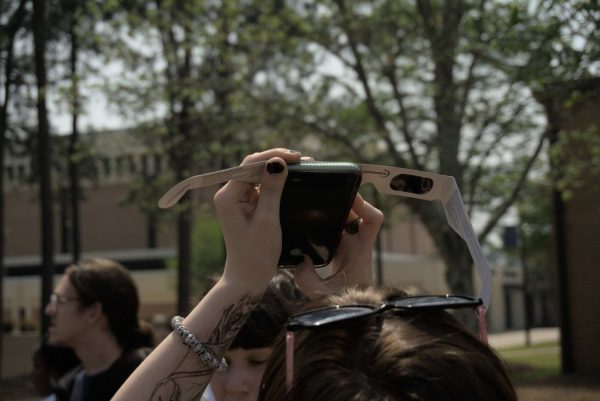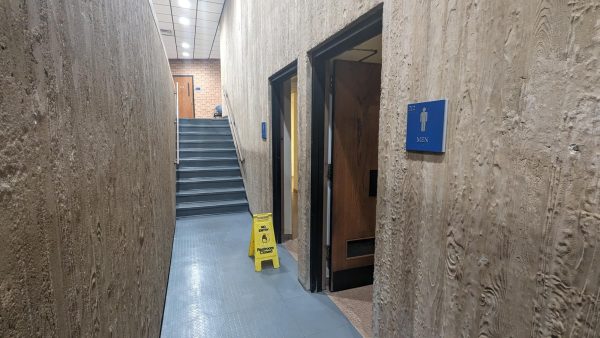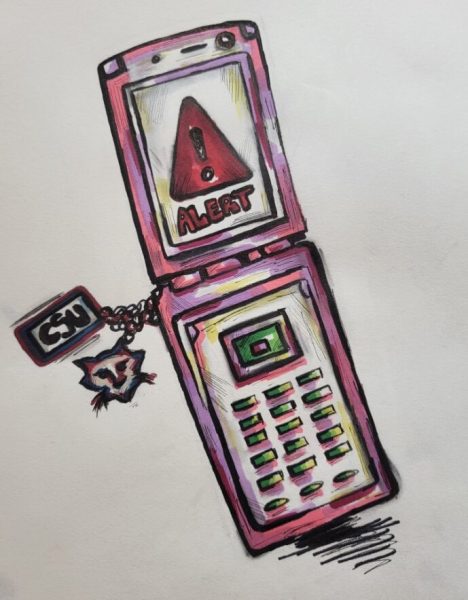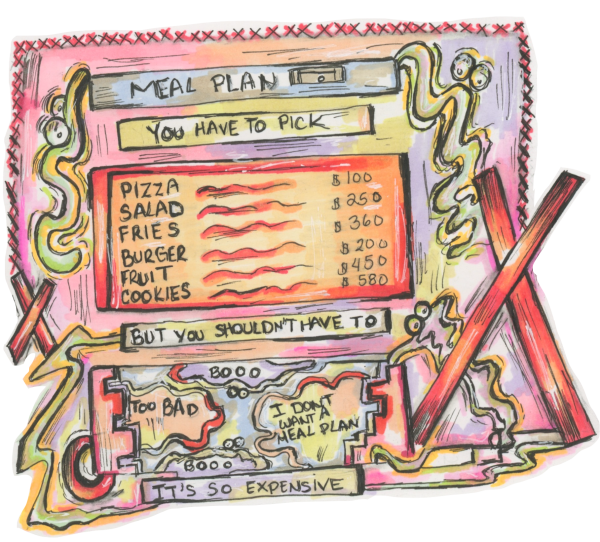TikTok Ban: What is it?
Satirical political cartoon by Ray Schmidt.
On March 23, TikTok’s CEO, Shou Zi Chew, testified in front of Congress on the safety of his app. Though TikTok itself is not based in China, its parent company, ByteDance, is, and this has prompted many legislators to raise concerns.
Many of the concerns raised in the hearing reflect much larger systemic issues. Problems such as an increase in social media usage by teens, though attributed to the addictive nature of the app, implicate more significant issues like the disappearance of third places, or “places where people spend time between home (‘first’ place) and work (‘second’ place),” according to an article by Brookings.edu.
The hearing involved Chew fielding questions that revealed a widespread misunderstanding of data networks and security. For example, Representative Richard Hudson of North Carolina wanted to know if TikTok accessed home wifi networks.
This potential ban on the popular social media app is impactful because TikTok is often considered more than just a lip-syncing app. For many, it is a way to connect with others on shared interests, raise awareness on important issues, find out cool life hacks, or just have a good laugh after a long day.
Additionally, many important current events that were not widely reported on by major news outlets are talked about on TikTok, including events such as the recent East Palestine, Ohio train derailment, and the expulsion of two Tennessee lawmakers after they supported student protests for gun regulations.
According to an article from Pewresearch.org, from 2020 to 2022, the share of U.S. adults who say they regularly get news from TikTok has roughly tripled, from 3% in 2020 to 10% in 2022, and that number only stands to increase.
The ban affects much more than Tik Tok interaction and sharing. The Restrict Bill (S. 686), the official name of the bill that Congress has introduced, does not mention TikTok by name, and if passed, could change how we interact with the internet entirely.
The bill covers hardware such as modems, routers, and home cameras, as well as software like VPNs, and bans them if they are manufactured by or used to contact foreign adversaries. The definition of this term can change at any time, but the ones currently listed are; the People’s Republic of China, the Republic of Cuba, the Islamic Republic of Iran, the Democratic People’s Republic of Korea, the Russian Federation, and the Bolivarian Republic of Venezuela under the regime of Nicolás Maduro Moros.
Under this bill, using a VPN to bypass any of the restrictions placed would become a criminal act, with the penalty being a prison sentence of no more than 20 years and a fine of no more than $250,000 or $1,000,000, depending on whether or not the perpetrator knowingly did so to access banned content.
This bill gives Congress the power to change definitions and restrictions at will, without warning, and could be used to not only restrict media but also to cut communication and the sharing of information abruptly. This means even well-known and popular games like League of Legends (Riot Games is owned by Tencent; a Chinese company) and Genshin Impact (miHoYo is also a Chinese-owned company) could be banned with no warning.
To learn more about the TikTok ban, users on the app like @underthedesknews, @sayheyjames, and this article from Reason Magazine have done an effective job of explaining the nuance behind the issue.

















